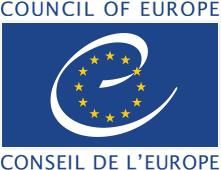ILMA - Notions clés - Résidence
 The development of the kinds of knowledge, attitudes and skills required for residence and citizenship purposes is a lifelong learning process for ALL members of society regardless of their official status. In the specific case of migrants, integration courses can usefully prepare them for essential independent acquisition beyond the course by providing appropriate information, awareness raising, practices and activities designed to foster their active participation and empowerment. This concept of (education for) citizenship does not lend itself to standard forms of evaluation. Plus...
The development of the kinds of knowledge, attitudes and skills required for residence and citizenship purposes is a lifelong learning process for ALL members of society regardless of their official status. In the specific case of migrants, integration courses can usefully prepare them for essential independent acquisition beyond the course by providing appropriate information, awareness raising, practices and activities designed to foster their active participation and empowerment. This concept of (education for) citizenship does not lend itself to standard forms of evaluation. Plus...


/https%3A%2F%2Fprofilepics.canalblog.com%2Fprofilepics%2F1%2F0%2F1076071.jpg)